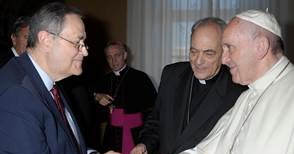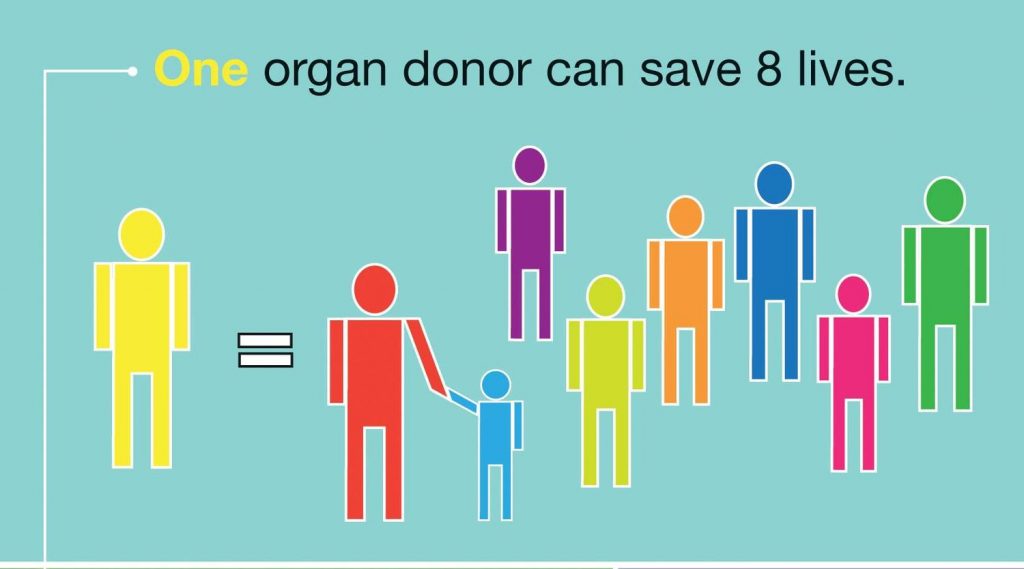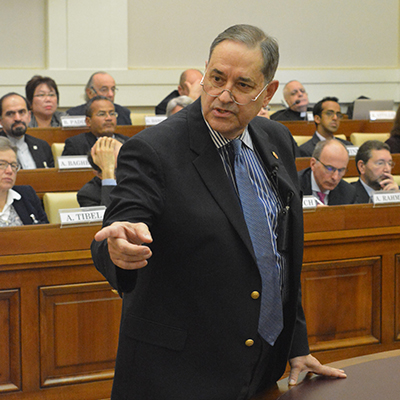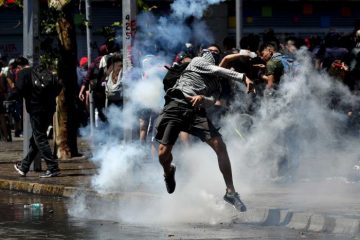Professor of Medicine at Harvard University in the USA, Medical Director of the New England Organ Bank and a real support for the organ transplant activity, Francis Delmonico hits us with some powerful truths!
– Why do you think the subject of organ transplantation generates sparks?
Prof. Francis Delmonico: – Transplantation is a noble event. In its own way, the mechanism of transplantation is divine: one person dies, and another person receives life again. So a person who has reached the end of his life gives his organs to another, to live. The press has a great responsibility for this topic, because, as part of the society, the press must monitor the transplant activity. The Health Ministry in every country has a responsibility to report the transplant activity, to constantly know the health status of living donors and to ensure that the distribution of organs is done correctly. Returning to the press, it has the responsibility to receive this information and to inform correctly, without throwing false, unverified assumptions.
– In many places of the world the
press focuses on stories such as “stole the organs of a man who was not
dead”, “Black ambulance steals children to take their organs”
…
Prof. Francis Delmonico: – But do these stories prove to be true?
-No.
Prof. Francis Delmonico: – As I said, the responsibility of the press is to present real information to the public.
– Could a medical team be all involved in a crime of stealing organs? Have you encountered such cases where a medical group – neurologist, surgeon, anesthetist, nurse, etc. – plotted to take the organs of a man who was not brain-dead?
Prof. Francis Delmonico:
-No! Three to four doctors cannot agree to commit a murder together!
– In China prisoners got killed for their organs. A journalist claimed that there is a chinese book in which you are portrayed as a supporter of that regime.

Prof. Francis Delmonico: – That
regime is something unique and atrocious. In the last decade of my life I have
visited China regularly to provide support to those who want reform in this
country. I have never supported the acts that the media has reported widely.
And while I was running the Transplant Society, as president, I managed to work
with colleagues from China, in order to convince the Chinese government to
create rules prohibiting the use of organs from executed prisoners.
-Is China the only country where you’ve heard of such abominable acts?
Prof. Francis Delmonico: – Yes, certainly yes! But things are changing, now it is against the law to do such a thing in China.
– Can organ trafficking be
covered or hidden?
Prof. Francis Delmonico: – For many years I have met patients from Egypt, Israel, the Middle East, USA, Canada who went to China to buy organs. This stopped. Those organs came from executed prisoners. Now I have visited many cities in China and talked with doctors, including those in military hospitals. Again, I have been told that this practice has stopped. And I have to believe them. The fact that I no longer know patients returning from Egypt, Saudi Arabia or Israel with new organs, transplanted… I would have been told if such cases would have appeared again, my colleagues would have informed me.

– Why is transplantation such a controversial topic?
Prof. Francis Delmonico: – It is the responsibility of the society that the organs from the brain dead donors be distributed fairly, by a computerized waiting list. As for living donors, these individuals who volunteer to donate should be monitored; their health status monitored, they should not suffer complications, their occupation should not be interrupted. So I do not think it is necessarily a controversial topic, but a subject that requires all these measures. This is a problem in India, for example. There are 10,000 transplants per year. We do not know if the donor dies or how the distribution of organs was performed.

– Have you heard of the `patient
mules` taking ill people to other countries for an organ transplant and these
carriages receive a generous commission? Sometimes these carriers do their best
to discredit the transplant program in the country of residence, precisely to
get as many patients as possible.
Prof. Francis Delmonico: – This is happening in Africa and India. My colleagues in Africa tell me that doctors in Nigeria are bribed to send patients to India for transplant. The doctor from Nigeria who sends the patient receives a CEC. So yes, this is happening in some parts of the world. It’s called organ transplantation tourism.
– Some transplant surgeons are accused, without evidence or a court decision, of being criminals.
Prof. Francis Delmonico: – This is unacceptable. Just unacceptable.
– Do you believe in the efficiency of the european system where the family of the brain death patient must consent for organ donation?
Prof. Francis Delmonico: – In the USA we have a register where people can declare themselves organ donors. Over 140 million people have signed up. If a person wishes to be a donor it is his right, no one else’s. Thus, a registry in which those who wish to be organ donors could be registered could substantially increase the number of lives saved by organ transplantation.
– In Israel there is an atypical system: if you declare yourself a donor, you will have priority over those who have not declared themselves donors, in case you need a transplant. Is this an effective method?
Prof. Francis Delmonico: – The Israelis have embraced this kind of philosophy: if you would like to receive a donated organ when you need it, then you should have no problem declaring yourself a donor. I have no objection to this system, but Israel has 7 million people. I do not think this approach is feasible in a country like the US, which has 300 million people. In the US there is the OPT-IN register. Francis L. Delmonico, MD, FACS (born in New York in 1945) is a surgeon, clinical professor and health expert in the field of transplantation. He serves on numerous committees and is affiliated with various leading organizations and institutions. He is the Chief Medical Officer of the New England Organ Bank (NEOB) and Professor of Surgery at Harvard Medical School in Boston, Massachusetts where he is Emeritus Director of Renal Transplantation. He served as President of The Transplantation Society (TTS) from 2012-2014, an international non-profit organization based in Montreal, Canada that works with international transplantation physicians and researchers. He also served as the President of the United Network of Organ Sharing (UNOS) in 2005 which oversees the practice of organ donation and transplantation in the United States. He was appointed and still serves as an advisor to the World Health Organization in matters of organ donation and transplantation. He was appointed by Pope Francis to the Pontifical Academy of Science in 2016.
This interview was given to Sandra Salagean,
an investigation journalist from Romania.

No Comment